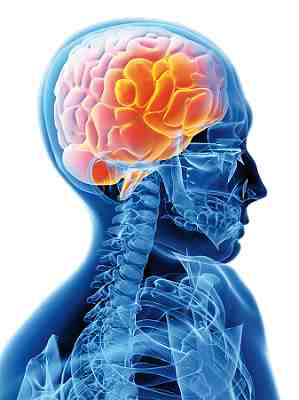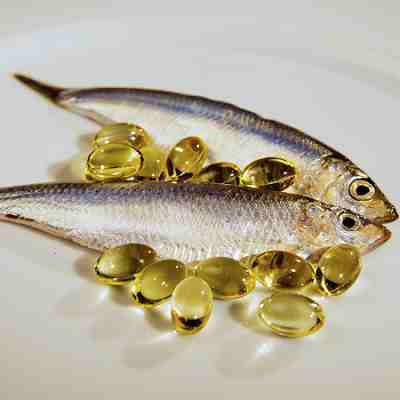Omega 3 and Your IQ
The intelligence quotient of humans, otherwise known as “IQ”, is a number scale used to describe the level of human intelligence. The average human ranges between 100 and 110, but the scale ranges from 70 to 130. Genius comes in right around 125 and up. Over the last few years with the boom of technology, our average IQ is beginning to slightly dip. Omega 3 supplements and its relationship to IQ is based on the brain’s need for these fatty acids in order for the neurons in the brain to function properly.
Let’s take a look at how Omega 3 fatty acids have improved brain health in humans over a very long period of time.
Prehistoric Migration and Omega 3 Rich Foods
Studies of prehistoric humans show the size of the brain as smaller than humans today. They had very limited communication and were not able to function as well as us. When they lived away from water sources, their behavior tended to be more primitive. Being away from water, they obviously didn’t eat fish that were rich in Omega 3 fatty acids.
 As soon as the migration towards water began, researchers found the brain began to increase in size. They started to have more advanced communication skills and were much more functional. In theory, this could only mean one thing – humans began to eat fish which are high in Omega 3 fatty acids. These are the actual building block of brain cells. The prehistoric human’s brain was beginning to grow and develop! And this continued on for quite some time, until processed or GMO foods came into play. Then the decline started.
As soon as the migration towards water began, researchers found the brain began to increase in size. They started to have more advanced communication skills and were much more functional. In theory, this could only mean one thing – humans began to eat fish which are high in Omega 3 fatty acids. These are the actual building block of brain cells. The prehistoric human’s brain was beginning to grow and develop! And this continued on for quite some time, until processed or GMO foods came into play. Then the decline started.
The Decline of Human Thinking Skills
With recent technological advancements, we don’t have to think as much for ourselves. We can go anywhere on the internet to get any information that we need.
Exercise in thinking keeps our brain developing, and we get very little anymore. The less we exercise our brain, the less it wants to work for us when we need it. The next reason for the decline is our diet is seriously deficient in Omega 3 fatty acids. These fatty acids are the very basic building block of brain cells. Such nutrients in adequate amounts keep our memory and cognitive skills working right. They also help us learn new things. Also, with growing technology is the growing fast food craze that is literally devoid of any Omega 3.
 Even if we got rid of every bit of technology in our homes, exercised our brains and read lots of books, we still cannot completely keep our brain healthy without Omega 3 fatty acids. This nutrient goes hand in hand with using our brain and helps us form new brain cells.
Even if we got rid of every bit of technology in our homes, exercised our brains and read lots of books, we still cannot completely keep our brain healthy without Omega 3 fatty acids. This nutrient goes hand in hand with using our brain and helps us form new brain cells.
Omega 3 helps us remember, process thoughts and speak to others. The problem is our diet does not have enough Omega 3 or too much Omega 6 fatty acids. We need to have more Omega 3 fatty acids and just a little Omega 6 fatty acids.
Keeping your IQ Healthy with Omega 3
Using Omega 3 fatty acids provides your brain with the nutrients it needs for healthy function. Our diets today lack the foods we need to get Omega 3. This is because the highest amounts come from fresh caught cold water fish. We need to be eating at least two servings per week, more if possible. The other issue is fish that contains mercury. Mercury competes with Omega 3 and interferes with absorption, among other health concerns.
Our bodies need around 600mg to 1000mg of Omega 3 each day to provide our bodies with adequate amounts. This is entirely possible with a diet filled with the right foods. Foods that have the most Omega 3 include:
- Fresh caught cold water fish – wild caught salmon, whitefish, tilapia, snapper, trout and shellfish.
- Flax seeds and flax oil – These can be used in foods and have a good vegetarian source of Omega 3.
- Walnuts – Use walnut or walnut oils in cooking. This is another good vegetarian source of Omega 3, just be cautious of tree nut allergies.
- Grass fed beef – Regular supermarket beef does not contain very much Omega 3, but more Omega 6. To increase the amount of Omega 3, buy grass fed beef.
 Soy – Soy products have a small amount of Omega 3 and are a small source for vegetarians. You can even combine soy with other Omega 3 foods to increase amounts.
Soy – Soy products have a small amount of Omega 3 and are a small source for vegetarians. You can even combine soy with other Omega 3 foods to increase amounts.
- Dietary Supplements – Some people have food allergies or don’t like the above listed foods. Supplements can help you get your needed Omega 3. Look for fish oils that are “mercury free” and pure sources.
- Watch for food allergies in supplements. For example; if you are allergic to shellfish, krill oil is extracted from krill, a very small shellfish.
Conclusion
Brain development began in prehistoric days as our ancestors migrated toward water and fresh water fish. These increased amounts of Omega 3 fatty acids were responsible for the increase in communication and motor skills that we use today. However, our diets are deficient in this important nutrient. Omega 3 supplements and IQ recovery go hand in hand, and it is important to get adequate amounts to preserve memory and learning in humans.

 Subscribe Now
Subscribe Now

 DHA – DHA develops brain cells and helps with memory, cognition, and mental health. They add it to baby formulas, and pregnant women should take in adequate DHA during pregnancy. The elderly may also get some benefits for dementia and memory loss. Find DHA in: wild salmon,
DHA – DHA develops brain cells and helps with memory, cognition, and mental health. They add it to baby formulas, and pregnant women should take in adequate DHA during pregnancy. The elderly may also get some benefits for dementia and memory loss. Find DHA in: wild salmon,  If we eat too much
If we eat too much 
 The brain cells are made up of nearly 15 to 20 percent Omega 3/DHA. This important nutrient soaks into the very nerve fibers in every brain cell. It feeds the tiny neurons that actually cause the brain cells to fire and communicate with the rest of the body. First and foremost, this action regulates things like; moods, memory, cognition, and learning. This is why Omega 3 is so important from infancy through adulthood and beyond.
The brain cells are made up of nearly 15 to 20 percent Omega 3/DHA. This important nutrient soaks into the very nerve fibers in every brain cell. It feeds the tiny neurons that actually cause the brain cells to fire and communicate with the rest of the body. First and foremost, this action regulates things like; moods, memory, cognition, and learning. This is why Omega 3 is so important from infancy through adulthood and beyond. According to World Life Expectancy.com, Monaco in the Mediterranean has an Alzheimer’s and
According to World Life Expectancy.com, Monaco in the Mediterranean has an Alzheimer’s and  Omega 3 and Infants
Omega 3 and Infants
 The symptoms of ADHD can actually overlap with a number of other conditions. These may not even be noticeable, and needs must be evaluated on behavior scales by a few different observers. Usually teachers, parents, and other caregivers fill out the scale forms and turn them into a Licensed Physician. The symptoms of ADHD can include:
The symptoms of ADHD can actually overlap with a number of other conditions. These may not even be noticeable, and needs must be evaluated on behavior scales by a few different observers. Usually teachers, parents, and other caregivers fill out the scale forms and turn them into a Licensed Physician. The symptoms of ADHD can include: Treatment, whatever type used, is important to reduce the discomfort of sufferers and those around them. It needs to focus on helping them learn to control increased energy levels, reduce movement, and hold conversations with others.
Treatment, whatever type used, is important to reduce the discomfort of sufferers and those around them. It needs to focus on helping them learn to control increased energy levels, reduce movement, and hold conversations with others. Omega 3 – Research has shown that almost half of kids in studies given Omega 3 fatty acid supplementation show reduced symptoms. It is thought that some cases of ADHD are due to a lack of EPA and
Omega 3 – Research has shown that almost half of kids in studies given Omega 3 fatty acid supplementation show reduced symptoms. It is thought that some cases of ADHD are due to a lack of EPA and 
 Omega 3 fatty acids perform many functions in our body. They help our brain develop healthy cells, improve memory, and maintain our cognitive functions. Omega 3 also improves the health of our cardiovascular system, reduces inflammation, and helps us build new cells. The downside is our body cannot make Omega 3 on its own, and we need to get it from the food we eat. Adding to the issue is that our diets today are seriously lacking in
Omega 3 fatty acids perform many functions in our body. They help our brain develop healthy cells, improve memory, and maintain our cognitive functions. Omega 3 also improves the health of our cardiovascular system, reduces inflammation, and helps us build new cells. The downside is our body cannot make Omega 3 on its own, and we need to get it from the food we eat. Adding to the issue is that our diets today are seriously lacking in 

 Omega 3 fatty acids are found in a variety of foods from both meat and vegetarian sources including; flax, salmon, walnuts,
Omega 3 fatty acids are found in a variety of foods from both meat and vegetarian sources including; flax, salmon, walnuts,